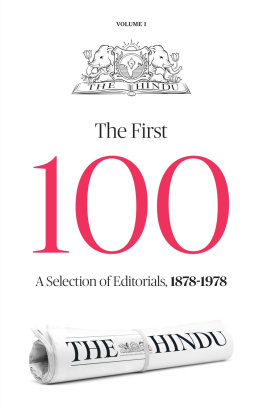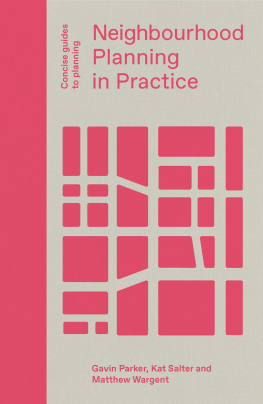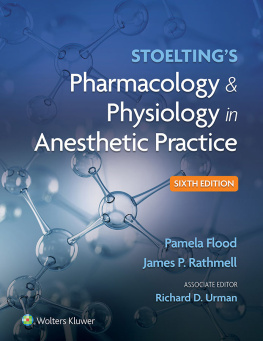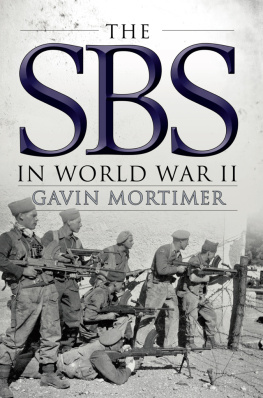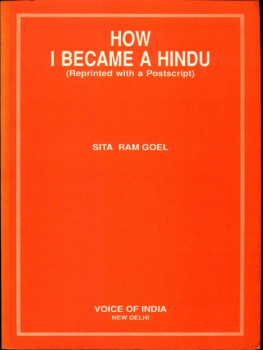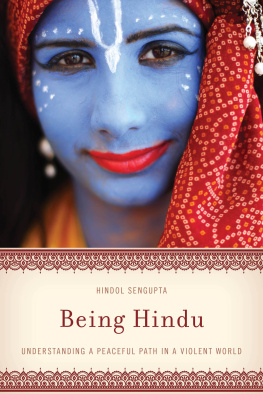Flood Gavin - Hindu Practice
Here you can read online Flood Gavin - Hindu Practice full text of the book (entire story) in english for free. Download pdf and epub, get meaning, cover and reviews about this ebook. year: 2020, publisher: Oxford University Press USA - OSO, genre: Religion. Description of the work, (preface) as well as reviews are available. Best literature library LitArk.com created for fans of good reading and offers a wide selection of genres:
Romance novel
Science fiction
Adventure
Detective
Science
History
Home and family
Prose
Art
Politics
Computer
Non-fiction
Religion
Business
Children
Humor
Choose a favorite category and find really read worthwhile books. Enjoy immersion in the world of imagination, feel the emotions of the characters or learn something new for yourself, make an fascinating discovery.
- Book:Hindu Practice
- Author:
- Publisher:Oxford University Press USA - OSO
- Genre:
- Year:2020
- Rating:4 / 5
- Favourites:Add to favourites
- Your mark:
- 80
- 1
- 2
- 3
- 4
- 5
Hindu Practice: summary, description and annotation
We offer to read an annotation, description, summary or preface (depends on what the author of the book "Hindu Practice" wrote himself). If you haven't found the necessary information about the book — write in the comments, we will try to find it.
Hindu Practice — read online for free the complete book (whole text) full work
Below is the text of the book, divided by pages. System saving the place of the last page read, allows you to conveniently read the book "Hindu Practice" online for free, without having to search again every time where you left off. Put a bookmark, and you can go to the page where you finished reading at any time.
Font size:
Interval:
Bookmark:

General Editor
Gavin Flood

Great Clarendon Street, Oxford, OX2 6DP, United Kingdom
Oxford University Press is a department of the University of Oxford. It furthers the Universitys objective of excellence in research, scholarship, and education by publishing worldwide. Oxford is a registered trade mark of Oxford University Press in the UK and in certain other countries
Oxford University Press 2020
The moral rights of the authors have been asserted
First Edition published in 2020
Impression: 1
All rights reserved. No part of this publication may be reproduced, stored in a retrieval system, or transmitted, in any form or by any means, without the prior permission in writing of Oxford University Press, or as expressly permitted by law, by licence or under terms agreed with the appropriate reprographics rights organization. Enquiries concerning reproduction outside the scope of the above should be sent to the Rights Department, Oxford University Press, at the address above
You must not circulate this work in any other form and you must impose this same condition on any acquirer
Published in the United States of America by Oxford University Press
198 Madison Avenue, New York, NY 10016, United States of America
British Library Cataloguing in Publication Data
Data available
Library of Congress Control Number: 2020939527
ISBN 9780198733508
ebook ISBN 9780191053238
Printed and bound in Great Britain by Clays Ltd, Elcograf S.p.A.
Links to third party websites are provided by Oxford in good faith and for information only. Oxford disclaims any responsibility for the materials contained in any third party website referenced in this work.
Introduction: A History of Hindu Practice
Gavin Flood
Ritual, Ascetic, and Meditative Practice in the Veda and Upanisads
Cezary Galewicz
Historical Context of Early Asceticism
Johannes Bronkhorst
Religious Practices in the Sanskrit Epics
John Brockington
The Early History of Renunciation
Patrick Olivelle
The Later Institution of Renunciation
Sondra L. Hausner
Measuring Innovation: Genesis and Typology of Early Pj
Natalia Lidova
Hahayogas Early History: From Vajrayna Sexual Restraint to Universal Somatic Soteriology
James Mallinson
The Quest for Liberation-in-Life: A Survey of Early Works on Haha- and Rjayoga
Jason Birch
Practice in the Tantric Religion of iva
Gavin Flood
Vaisnava Practice
Rembert Lutjeharms
Theatre as Religious Practice
Lyne Bansat-Boudon
Sounding Out the Divine: Musical Practice as Theology in Samj Gyan
Richard David Williams
Womens Observances: Vratas
Tracy Pintchman
Gandhi, Hinduism, and Humanity
Faisal Devji
Legal Yoga
Sunila S. Kale and Christian Lee Novetzke
The Modern Spirit of Yoga: Idioms and Practices
Elizabeth De Michelis
Gurus in Contemporary Hindu Practice
Daniel Gold
Firstly, I would like to thank all the contributors to this volume for their work and great patience. This book took far longer to complete than anticipated because of a number of factors outside the editors control but finally we have a volume of which, I think, we can be proud. Secondly, I would like to thank Tom Perridge at OUP for suggesting the project and for his encouragement and help in bringing it to completion. I would like to thank the Theology and Religion Faculty at Oxford University for supporting my work along with Yale-NUS College, Singapore, colleagues at the Oxford Centre for Hindu Studies for their collegiality and help when the enterprise seemed to be coming to a standstill, and my wife, Dr Kwan Kui Leung, for her great encouragement, as always, and faith in the project.
The series offers authoritative, comprehensive coverage of the history of Hinduism. Although the word Hinduism is problematic as the terms origin is only from the nineteenth century and Hindu is only attested as a peoples self-description from the sixteenth century, it nevertheless denotes a range of traditions within India whose roots reach deep into the past. The volumes in the series provide a history of the religious traditions encompassed by the term Hinduism from the first millennium bce to the present day. One of the problems about studying the history of Hinduism, especially in the earlier period, concerns dating. It has been notoriously difficult to establish the dates of early traditions, figures, and texts before the medieval period. We can fairly accurately date Sanskrit texts of Buddhism when translated into Chinese, but Hindu texts are more problematic, although there is general agreement about the sequence of major developments within this history.
Another issue is the category religion. Some scholars have argued against using it in the Indian context on the grounds of its local origin in the history of the West, but arguably the term demarcates a set of ideas, practices, and hopes and the English word is no more problematic than culture or even society. But we do need to acknowledge these difficulties and that our claims as scholars are always provisional, subject to correction, and our categories must sometimes be used without consensual definition.
Each volume considers the relationship between Hinduism and the wider society, for religion is always embedded within culture and socio-political structures. Hinduism needs to be understood as dynamically engaging with wider Indian society and with other religions, particularly Buddhism and Jainism, throughout its long history. This dynamism and the interactive nature of the religion are reflected in each of the volumes, some of which are more focused on Sanskrit traditions while others will have more weight on vernacular literatures such as Tamil. After the Vedic age, the volumes are organized thematically and chronologically. Thus, we have volumes devoted to the three major traditions focused on Shiva, the Goddess, and Vishnu, volumes on philosophy and practice, Hinduism in the modern world, and vernacular traditions. Each volume addresses not only theological concerns but also material culture, such as temples and architecture, along with the history of practices such as making offerings to a deity (
Font size:
Interval:
Bookmark:
Similar books «Hindu Practice»
Look at similar books to Hindu Practice. We have selected literature similar in name and meaning in the hope of providing readers with more options to find new, interesting, not yet read works.
Discussion, reviews of the book Hindu Practice and just readers' own opinions. Leave your comments, write what you think about the work, its meaning or the main characters. Specify what exactly you liked and what you didn't like, and why you think so.




